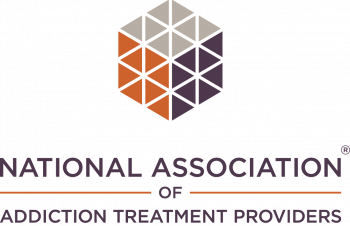Signs someone has a substance abuse disorder can be subtle. Typically, we imagine a person with an addiction strung out and acting erratically. There are instances in which individuals can hide their addictions, even those they are closest to. It’s important to be aware of signs that you might be dating an addict. If you believe your partner has an addiction, it may be time to stage an intervention. Reach out to TruHealing Gaithersburg at (833) 625-0398 to speak with a trained representative about addiction and common relationship issues. Our drug addiction program is a terrific option for those seeking to get their lives back on track and rebuild relationships that have been damaged due to addiction.
4 Signs You’re Dating a Drug Addict
1. Mood Instability
People with addictions often have dramatic mood shifts. This can be because they are energetic or relaxed, depending on their drug of choice, when they are using, and then they are low energy and irritable when they are going through withdrawal.
Common signs of withdrawal can include:
- Anxiety
- Restlessness
- Agitation
- Irritability
- Nervousness
- Fatigue
- Shakiness or tremors
- Sweating
- Nausea or vomiting
- Mood instability
- Inability to focus or concentrate
- Headaches
- Changes in appetite
- Sleep issues
More severe signs of withdrawal can include:
- Fever
- High blood pressure
- Extreme agitation
- Confusion
- Hallucinations
- Seizure
If you notice any combinations of these withdrawal symptoms in your partner, it may be a sign that they have developed a substance abuse disorder. Early intervention is best, but it’s important to remember that recovery is always possible.
2. Relationship Issues
If your partner has stopped seeing friends, is isolating more, or only wants to go to situations where alcohol is available, this may be a sign that they have an alcohol use disorder (AUD) or a drug addiction.
People with substance abuse issues often struggle to maintain healthy relationships with others, including close friends and family. If someone is distancing themselves from those they say they love and care about, it may signify that they are struggling with addiction.
You may also notice that your partner has stopped engaging in hobbies they once found important or interesting. Loss of interest in hobbies and activities is a common sign of addiction. Those with substance abuse disorders often lose interest in activities that do not fuel their addiction.
3. Financial Problems
Those with addictions often have problems with money, even if they have jobs with substantial incomes. This is partly due to the amount of money they are spending on substances and, in other instances, because they are mismanaging their finances.
Someone may be dealing with legal issues that they have not openly discussed, which can strain finances.
Those with drug addictions often accumulate large amounts of debt on credit cards and take out loans to feed their habit. Spouses are often shocked to discover that a savings account has been depleted or the debt has accrued that they were unaware of because the person using drugs was secretly draining funds from all available resources.
If you have noticed that you tend to be the person paying most bills, groceries, meals out, or other expenses, it may be a sign that your partner is unable or unwilling to pay because they want to hold on to their funds to buy drugs. If you confront your partner about this, they may respond with hostility which is also a common sign that someone has an addiction. Those with substance abuse disorders often become extremely defensive when confronted with the suggestion that they “have a problem” or “should talk to someone” (such as a mental health counselor) and especially any mention of possible need for rehab.
4. Often “Sick”
People with addictions often tell people that they do not feel well enough to cover for withdrawal and other negative effects associated with drug abuse and addiction. If someone is frequently calling out of work or unable to fulfill their daily work, family, or childcare responsibilities, it may signify that they have a substance abuse disorder.
In general, changes in behavior are a sign someone may be struggling with a substance abuse disorder. Engaging in risky behaviors, having unexplained injuries or accidents, neglecting responsibilities, and memory issues are common signs.
TruHealing Gaithersburg is Here to Help
The professionals at TruHealing Gaithersburg in Maryland are ready to help you and your loved one manage the challenges associated with addiction and recovery. Our expert team of medical doctors and mental health practitioners will work with you to formulate a treatment plan based on your particular needs.
Our programs include but are not limited to:
- Gender-specific rehab center
- Partial hospitalization program (PHP)
- Intensive outpatient program (IOP)
- Outpatient treatment program (OP)
- Aftercare program
- Relapse prevention program
Our mental health therapies include a range of traditional and holistic treatments such as:
- Cognitive-behavioral therapy (CBT)
- Dialectical behavior therapy (DBT)
- Individual therapy
- Family therapy
- Group therapy
- Trauma-focused therapy
- Eye movement desensitization and reprocessing (EMDR) therapy
We encourage you to reach out to us today at (833) 625-0398 to speak with a trained representative about how our programs and services can help you break the cycle of addiction and get your life back on track.









